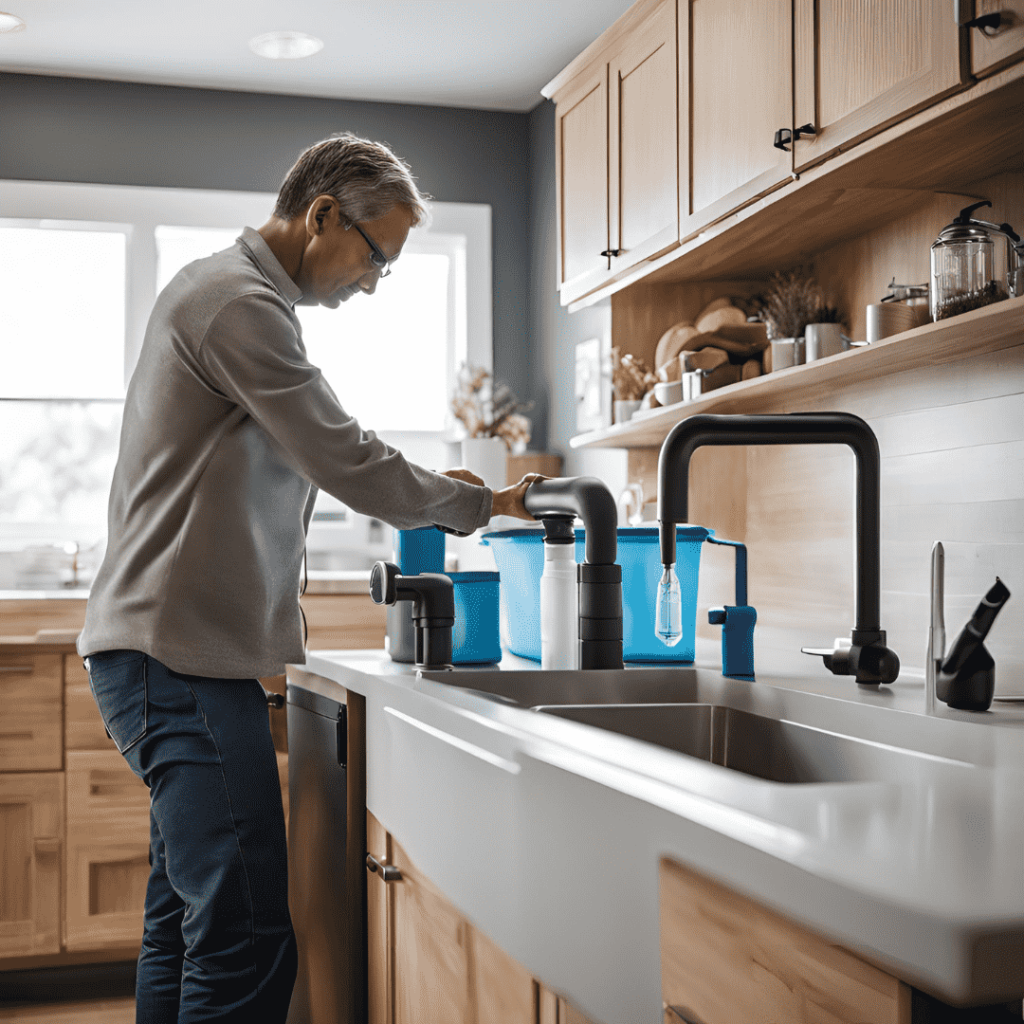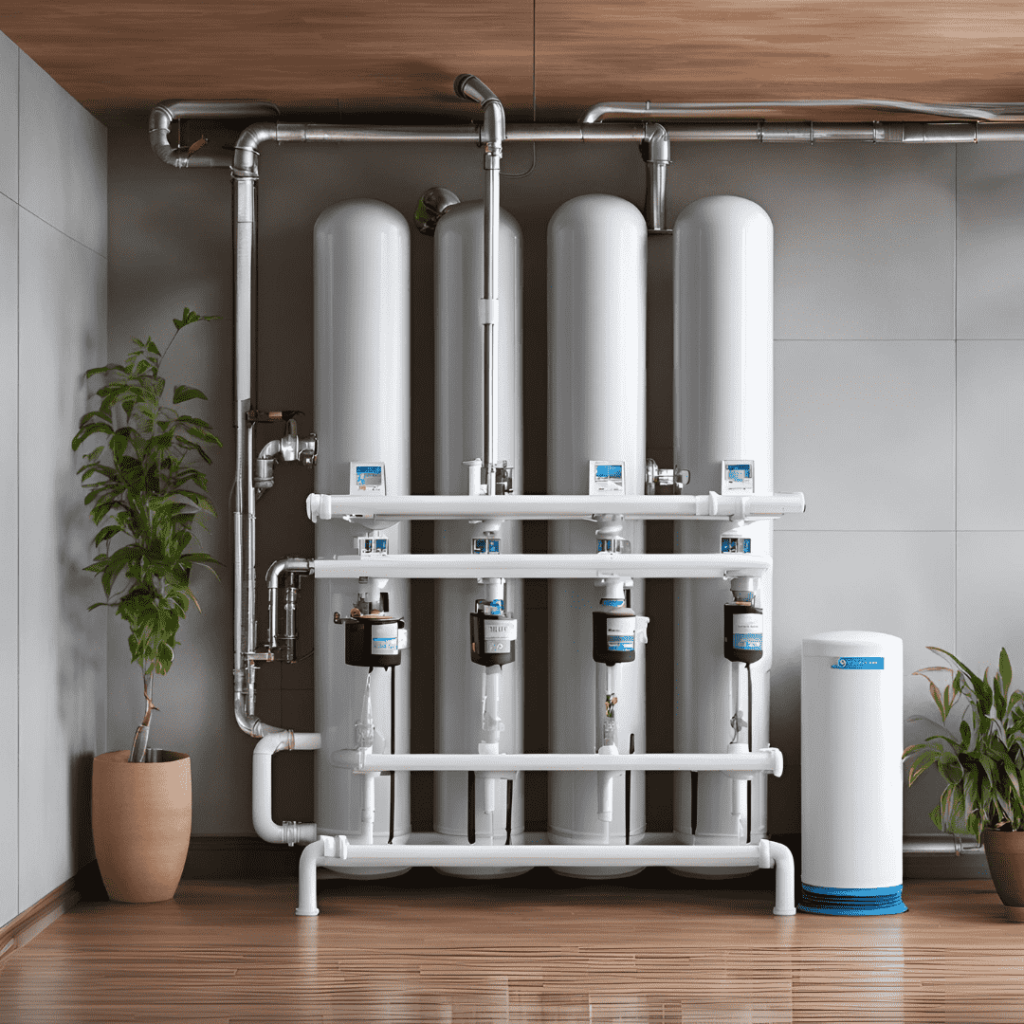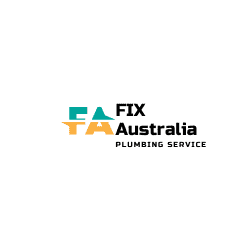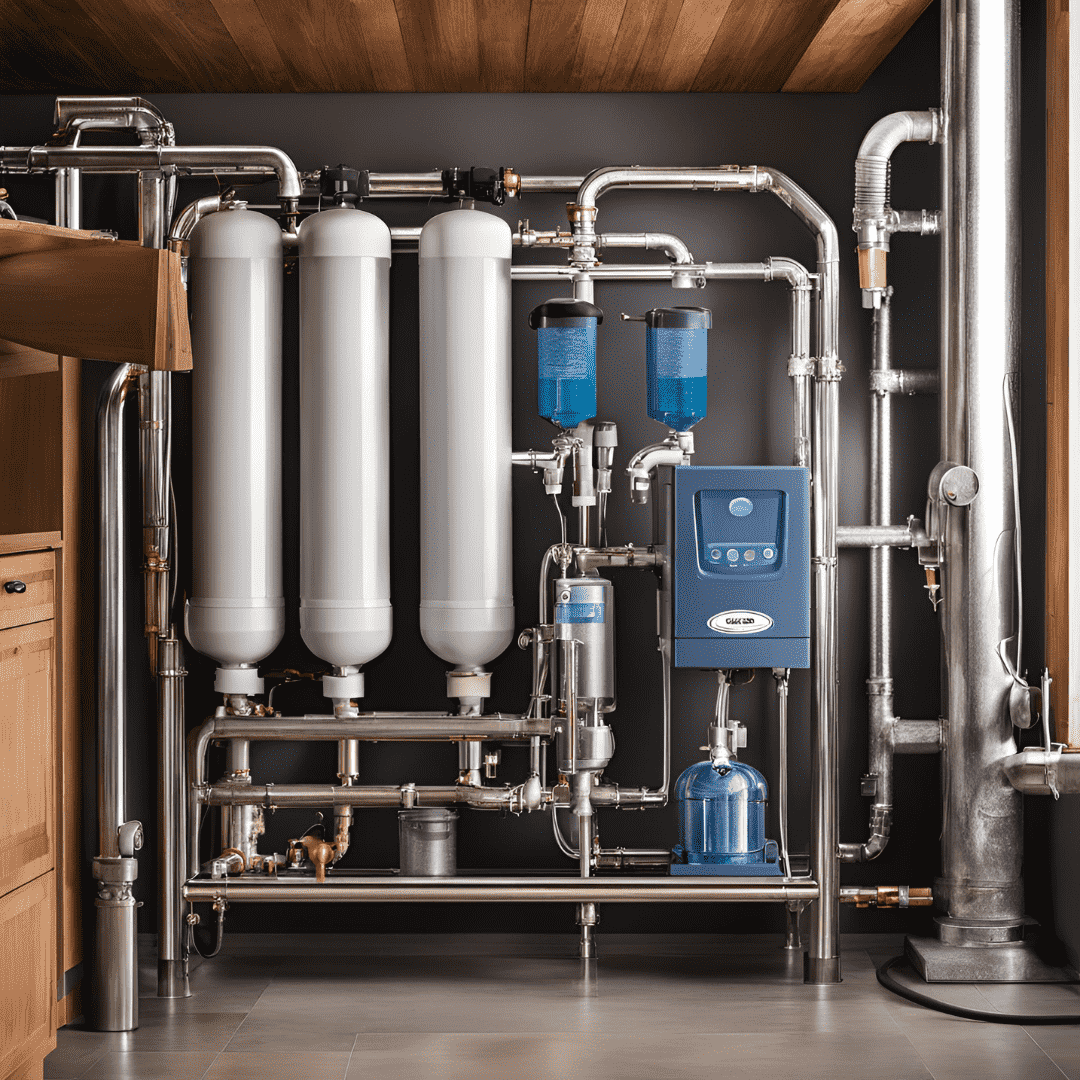Are you worried about what is in your tap water? Do you ever wonder if the water your household drinks every day is secure? Installing a water filtration system in your home has multiple uses. It can improve your health, save money, and benefit the climate.
Humans rely on clean, safe water to exist, but many houses may have contaminated tap water. Pollution and outdated infrastructure can contaminate even purified municipal water. Investing in a home water filtration system is a forceful move toward your family’s well-being.
Significance of Clean Water
Water is essential for life, but not all water that flows from our taps is pure. Contaminated water can have negative effects on health, plumbing systems, and appliances. Understanding the potential issues with tap water is the first step toward making an informed decision about water filtration.
Common Impurities in Tap Water
- Chlorine and Chloramines: Used to disinfect water, these chemicals can leave an unpleasant taste and smell. Long direction may also have health importance.
- Lead: Often leaches from old pipes, posing serious health risks, especially to children and pregnant women. Lead exposure can affect neurological development and cause other severe health issues.
- Pesticides and Herbicides: Agricultural runoff can introduce harmful chemicals into water supplies, potentially leading to long-term health problems.
- Microorganisms: Bacteria, viruses, and parasites can cause waterborne diseases, leading to gastrointestinal illnesses and other infections.
Check: 5 Effective Ways to Unclog a Shower Drain Blocked
Health Benefits of Water Filtration Systems for Home Use
Here are some health benefits of water filtration systems:
Effective Removal of Harmful Substances
A household water filtration system can successfully remove a variety of impurities. Advanced filters can remove up to 99% of contaminants, such as heavy metals, chemicals, and microbes, ensuring that your drinking water is pure and safe.
Enhanced Taste and Odor
Water filtration systems improve the taste and odor of your water by removing chlorine, sulfur, and other contaminants. This makes drinking water more enjoyable and promotes greater hydration, which is critical for general health.
Protection Against Waterborne Diseases
Filtration systems limit the presence of potentially dangerous microbes, minimizing the risk of diseases like diarrhea, cholera, and typhoid fever. This is especially useful for families with young children, the elderly, or people who have compromised immune systems.
Financial Advantages of Installing a Water Filtration System
Here are some financial advantages of installing a water filtration system at home:
Significant Savings Over Bottled Water
Buying bottled water might get costly over time. Filtering your tap water provides you with high-quality water to drink at a pinch of the cost, resulting in significant long-term savings. You also save on gas and time spent buying bottled water.
Reduced Appliance Maintenance Costs
Filtered water reduces mineral advertisement in devices such as dishwashers, washers, and coffee makers. This reduces wear and tear, which leads to fewer repairs and a longer lifespan for your appliances, saving you money on replacements and maintenance.
Potential Increase in Property Value
A home supplied with a water filtration system can be more pretty to potential customers. It’s a valuable addition that can increase your property’s market value, making it a smart asset if you plan to sell your home in the future.

Environmental Benefits
The environmental benefits include their result in decrease in plastic waste and many more benefits like:
Decrease in Plastic Waste
By switching to filtered tap water, you reduce reliance on single-use plastic bottles. This decrease in plastic waste helps combat pollution, protects marine life, and conserves landfill space, contributing to a healthier planet.
Conservation of Resources
Producing and transporting bottled water consumes significant energy and resources. A home filtration system lessens this environmental impact, reducing your carbon footprint and supporting global efforts to combat climate change.
Sustainable Living
Installing a water filtration system aligns with sustainable living practices. It promotes responsible consumption and encourages others in your community to adopt eco-friendly habits, amplifying the positive environmental impact.
Convenience and Accessibility
Unlimited Access to Clean Water
With a water filtration system, you have an endless supply of clean water at your fingertips—for drinking, cooking, bathing, and cleaning. This eliminates the inconvenience of running out of bottled water or needing to boil tap water for safety.
Check: How to fix a leaking tap?
Ease of Maintenance
Modern water filtration systems are designed for minimal upkeep. Regular filter changes are straightforward and can be done without professional assistance, ensuring continuous optimal performance without significant effort.
Versatility of Filtration Options
There are various filtration systems available to suit different needs and preferences, whether you require whole-house filtration or specific point-of-use filters. This versatility ensures you can find a system that perfectly fits your lifestyle.
Protecting Your Home’s Plumbing and Appliances
Prevention of Pipe Corrosion
Filtered water is less harsh on your plumbing system. By reducing corrosive substances like chlorine and heavy metals, you extend the life of your pipes and avoid costly repairs due to leaks, corrosion, or bursts.
Reduction of Scale and Mineral Deposits
Water filtration systems remove minerals like calcium and magnesium that cause scale buildup. This not only protects your appliances but also improves their efficiency, leading to lower energy bills and better performance.
Improved Efficiency of Household Appliances
Appliances that use water, such as water heaters and washing machines, operate more efficiently with filtered water. Reduced mineral buildup means these appliances require less energy to function, saving you money and reducing environmental impact.
Check: How to Prevent and Fix Hot Water Heater Leaking at Home?
Choosing the Right Water Filtration System for Your Home
There are various types of water filtration systems available, each with unique benefits:
- Whole-House Filtration Systems: Provide comprehensive filtration for all water entering your home, protecting plumbing and appliances.
- Under-Sink Filters: Installed beneath the kitchen sink to filter water for drinking and cooking, offering a discreet solution.
- Countertop Filters: Easy to install and ideal for renters or those seeking a portable solution, requiring no permanent modifications.
- Reverse Osmosis Systems: Offer high-level filtration by removing dissolved solids and contaminants, ideal for areas with poor water quality.
- Ultraviolet (UV) Purification Systems: Use UV light to eliminate bacteria and viruses, providing chemical-free disinfection.

Factors to Consider When Choosing a System
- Water Quality: Identify the contaminants present in your water through testing to select an appropriate filtration method.
- Budget: Consider initial costs and ongoing maintenance expenses to find a system that offers the best value.
- Installation: Decide between professional installation or a DIY system based on complexity and your comfort level with installation tasks.
- Household Needs: Assess your family’s water usage and specific health concerns to ensure the system meets your requirements.
Installation and Maintenance Tips
Professional Installation vs. DIY
While some systems are user-friendly and can be installed yourself, professional installation ensures optimal performance and can prevent potential issues down the line. Professionals can also provide valuable advice tailored to your home’s specific needs.
Regular Maintenance Ensures Optimal Performance
Adhering to a maintenance schedule is crucial. Replace filters as recommended by the manufacturer to maintain water quality and system efficiency. Regularly check for leaks or unusual noises to address any problems promptly.
Troubleshooting Common Issues
Familiarize yourself with common issues like reduced water flow or unusual tastes, which may indicate it’s time for maintenance. Having a basic troubleshooting guide can help you resolve minor problems without professional assistance.
Real-Life Benefits and Testimonials
Many homeowners report noticeable improvements after installing water filtration systems:
- Improved Health: Fewer instances of stomach illnesses, skin irritations, and allergic reactions due to cleaner water.
- Better Taste: Enhanced flavor of drinking water, tea, and coffee, leading to increased water consumption and hydration.
- Cost Savings: Reduction in spending on bottled water, medical bills from waterborne illnesses, and appliance repairs.
- Peace of Mind: Confidence knowing that the water used for drinking, cooking, and bathing is safe and clean.
Conclusion
Investing in a home water filtering system offers various advantages. It’s a long-term investment that benefits your family’s health, enhances the flavor of your water, saves money, and helps the environment. Clean water is a fundamental necessity, and ensuring its purity is a wager in your family’s future.

